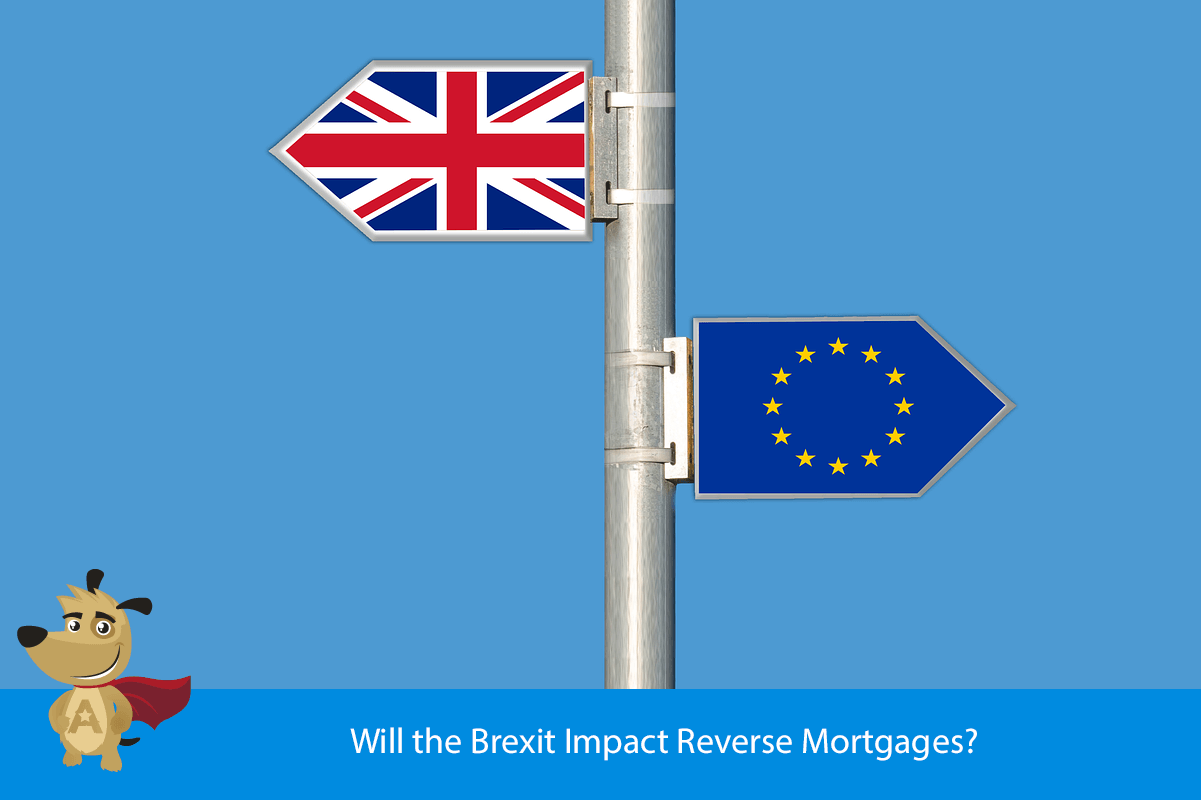
America’s #1 Rated Reverse Lender*
How Will Brexit Impact Reverse Mortgages?
 |
Michael G. Branson, CEO of All Reverse Mortgage, Inc., and moderator of ARLO™, has 45 years of experience in mortgage banking, with the past 20 years devoted exclusively to reverse mortgages. A Forbes Real Estate Council member, he developed the industry's first fixed-rate jumbo reverse mortgage and has been featured in Forbes, Kiplinger, the LA Times, and Yahoo Finance. (License: NMLS# 14040) |
 |
Cliff Auerswald, President of All Reverse Mortgage, Inc., and co-creator of ARLO™ — the industry's first real-time reverse mortgage pricing engine — has 27 years of experience in mortgage banking, with 20+ years focused exclusively on reverse mortgages. A recognized expert in reverse mortgage technology and consumer education, he has been featured in Kiplinger, Yahoo Finance, Realtor.com, and HousingWire. (License: NMLS# 14041) |
As you have heard by now, Brexit happened. The United Kingdom voted in referendum in June to leave the European Union.
Though nothing catastrophic has happened as a result, there will likely be some slow changes taking place across the real estate landscape in the U.S. in the coming years, especially when it comes to the housing market.
Since the talk of a Brexit possibility began, financial experts have been speculating as to how it might impact the U.S. housing market.
A trickle-down effect could have some bearing on reverse mortgages for current and future borrowers.
Immediately following the Brexit vote, the benchmark 10-year US Treasury rate fell by about 20 basis points to 1.56%. Currently, mortgage rates in the U.S. are around 3.5%, which is fairly low for a 30-year fixed mortgage versus historical averages.
For Home Equity Conversion Mortgages, there was some impact seen in the first week after the Brexit was accepted.
Those who were taking out adjustable-rate reverse mortgages with a margin of 3.51% or less could be responsible for paying the maximum principal limit. The future impact remains to be seen, but likely will not be very substantial.

Future impacts on housing market
The housing market, as a whole, will most likely see a lot of changes. Right now mortgage rates are moving slowly, which won’t make a significant dent in the economy, but could mean your home may be worth more down the road.
The changes were seen right when the Brexit vote happened, but typically, mortgages rates move very gradually, especially when going down.
If interest rates stay low, homebuyers will be able to afford more house based on the same level of income.
There is also chatter about some analysts seeing a higher demand for real estate in America now versus foreign markets.
Economists are predicting a demand in major U.S. cities such as New York and Los Angeles, which could potentially make some situations worse in these overheated property markets.
For example, the real estate market in London has long been considered extremely stable, serving as a place for the ultra-wealthy to invest in real estate. Now, people are less certain as to what will happen in the post-Brexit world.
It’s a reasonable assumption to expect higher real estate prices for both commercial and residential properties in the U.S. if those who usually buy real estate in London take a swing at the U.S. market.
Real estate analysts from BlackRock, an investment management company headquartered in New York, predict that commercial property in the United Kingdom could drop as much as 10% over the next year, because of the declines in London.
Some of these pressures may lead to more value in the U.S. housing market.
What this means for you
If you are thinking about applying for a reverse mortgage down the road, now may be a good time to refinance your current home if you haven’t yet paid it off.
This could lower your mortgage payment help you pay off your home at a faster rate, which could increase your equity.
And more equity equals a larger amount of money to work with and potentially receive on a reverse mortgage loan.
On the flip side, if you are looking to move out of your home and take advantage of a reverse mortgage for purchase transaction to buy a new one, your home’s value could increase in the next five years or more.
Again, the extra value can be used as money toward securing a new home, or in your retirement savings account.
Additional Resources:
- HUD.GOV H4P Fact Page http://portal.hud.gov/hudportal/HUD?src=/program_offices/housing/sfh/hecm/faqs_hecm
- Track Current Reverse Mortgage Interest Rates at https://reverse.mortgage/rates

 Michael G. Branson
Michael G. Branson Cliff Auerswald
Cliff Auerswald

Have a Question About Reverse Mortgages?
Over 2000 of your questions answered by ARLO™
Ask your question now!